Wednesday, May 30, 2007
Radio Interview About Caregiving For Aging Parents
An old friend from the National Black MBA Association and the National Speakers Association, Carole Copeland Thomas, hosts a weekly radio show in Boston. She featured me as one of her entrepreneur guests on September 1, 2006.
There is a ten-minute segment on my business background, a 5-minute commercial break, and after the commercial break, I speak about long distance caregiving .
I didn’t think I had done well because I did not have questions in advance. I just listened to it and think I did OK!
Here it is: Be sure to click on the tool bar underneath the other guest. It’s the second button next to the volume/speaker icon.
http://web.mac.com/tellcarole/iWeb/Site/RadioShow/CE60E97F-2F38-475D-A12D-3D6298511BFE.html
Tuesday, May 29, 2007
Hospice-A Service, Not A Place!

I think it resulted from having experienced a moment of clarity, today.
After months of hearing about hospice from my reading, research, conventions, spiritual friends, and hospice volunteers, I have moved forward in coming to terms with endings and with the fact that our family needs help dealing with all this emotionally. My dad is an angry wreck and I want to cry because of emotions I don't know how to handle.
On several occasions, in 2005, Dr. Thomas of the Little Company of Mary Hospital in Chicago informed me my Mom would not live long and needed hospice care. I summarily dismissed his comments, brought my mom home to be alongside her husband in her home, and proceeded to hire round-the-clock care to care for her in the convert of home. One of the nurses assigned to us after my mom's nursing home stay, completed a form and checked off the box indicating that my mom had less than six months to live.
There has been much evidence of an ending; I have ignored it.
As a result of my mom's being with her husband of 63 years, in her house she loves, well taken care of by round-the-clock caregivers, and receiving regular visitors from friends, she is doing okay. She has beaten all the odds.
When I attended my second caregiver conference last week, I learned a whole new definition of hospice. I always believed hospice was a place where terminally ill people go to die within days or weeks.
I learned that hospice is more than just a place. It is a service. A service that provides palliative care and help with bereavement.
According to VITAS, the nation's largest hospice provider, End-of-life patient care pushes and tests us every day. Each day is a new life for hospice patients, continually creating new demands on caregivers. Each day, hospice must re-define itself to address the dynamic needs of patients and families.
Caring Connections, a program of the National Hospice and Palliative Care Organization (NHPCO), is a national consumer engagement initiative to improve care at the end of life, supported by a grant from The Robert Wood Johnson Foundation. They provide the following descriptions of hospice services from their website: caringinfo.org
How Does Hospice Work?
Hospice care is for any person who has a life-threatening or terminal illness. Most reimbursement sources require a prognosis of six months or less if the illness runs its normal course. Patients with both cancer and non-cancer illnesses are eligible to receive hospice care. All hospices consider the patient and family together as the unit of care.
The majority of hospice patients are cared for in their own homes or the homes of a loved one. “Home” may also be broadly construed to include services provided in nursing homes, hospitals and prisons.
Typically, a family member serves as the primary caregiver and, when appropriate, helps make decisions for the terminally ill individual. Members of the hospice staff make regular visits to assess the patient and provide additional care or other services. Hospice staff is on-call 24 hours a day, seven days a week.
Who is the Hospice Team?
Hospice care is a family-centered approach that includes, at a minimum, a team of doctors, nurses, social workers, counselors, and trained volunteers. They work together focusing on the dying patient’s needs; physical, psychological, or spiritual. The goal is to help keep the patient as pain-free as possible, with loved ones nearby until death. The hospice team develops a care plan that meets each patient's individual needs for pain management and symptom control.
· It is important to find out what the role of the patient's primary doctor will be once the patient begins receiving hospice care. Most often, hospice patients can choose to have their personal doctor involved in the medical care. Both the patient's physician and the hospice medical director may work together to coordinate the patient's medical care, especially when symptoms are difficult to manage. Regardless, a physician's involvement is important to ensure quality hospice care. The hospice medical director is also available to answer questions you or the patient may have regarding hospice medical care.
The team usually consists of:
The patient' s personal physician;
Hospice physician (or medical director);
Nurses;
Home health aides;
Social workers;
Clergy or other counselors;
Trained volunteers; and
Speech, physical, and occupational therapists, if needed.
What Services Does the Hospice Team Provide?
Among its major responsibilities, the interdisciplinary hospice team:
Manages the patient’s pain and symptoms;
Assists the patient with the emotional and psychosocial and spiritual aspects of dying;
Provides needed medications, medical supplies, and equipment;
Coaches the family on how to care for the patient;
Delivers special services like speech and physical therapy when needed;
Makes short-term inpatient care available when pain or symptoms become too difficult to manage at home, or the caregiver needs respite time; and
Provides bereavement care and counseling to surviving family and friends.
In many cases, family members or loved ones are the patient's primary care givers. Additionally, hospice recognizes that loved ones have their own special needs for support. As a relationship with the hospice begins, hospice staff will want to know about the primary caregiver's priorities. They will also want to know how best to support the patient and family during this time. Support can take many different forms, including visits with the patient and family members; telephone calls to loved ones, including family members who live at a distance, about the patient’s condition; and the provision of volunteers to assist with patient and family needs.
Counseling services for the patient and loved ones are an important part of hospice care. After the patient's death, bereavement support is offered to families for at least one year. These services can take a variety of forms, including telephone calls, visits, written materials about grieving, and support groups. Individual counseling may be offered by the hospice or the hospice may make a referral to a community resource.
I decided to go online to locate VITAS closest to my parents and picked up that heavy telephone to determine how the Scott family can receive their services.
I spoke with Cindy a helpful call center specialist. I provided her with my mother’s and father’s Social Security numbers, insurance information and medical diagnoses. She says the next steps are to have their doctor contact them to authorize hospice service. Once they receive that call, they will send out a registered admissions nurse to conduct an assessment of why parents need.
Hopefully, they will be able to schedule an appointment with the registered admissions nurse to coincide with my upcoming trip to Chicago at the end of the week: May 31 through June 5, 2007.
I will keep my fingers crossed, that my parents will both be accepted and that we will soon begin to receive professional help with things we don't know how to handle emotionally.
I will keep you posted on the outcome.
Thursday, May 24, 2007
Gathering Information At the Fearless Caregiver Conference

I am feeling invigorated and empowered after attending the ninth annual Fearless Caregiver Conference, held yesterday in Ft Lauderdale. Two months ago I attended this conference when it was held in Miami.
At both conferences, I benefited significantly from the opportunity to learn from professionals in all aspects of elder care who presented products and services and shared their wisdom about caregiving. I was also able to connect with other caregivers who have dedicated a significant part of their lives toward caring for their aging loved ones. While I learned a lot, I realized how much I've already learned as a result of being a solo long-distance caregiver for more than two years now. During the question and answer sessions, I realized I could have contributed some wisdom to every single discussion.
Fearless caregiver conferences, hosted across the country, bring together caregivers and elder care experts, to share their knowledge and experience. These conferences, generally free to the public, are offered by several dozen sponsors and exhibitors who wish to provide information on the plethora of products and services available to assist caregivers in making the best decisions in giving the best care for their aging loved ones.
The format for these helpful conferences consist of an exhibit area, where more than 35 exhibitors provide caregiver information on some of the following: long-term care insurance, Alzheimer's disease, hearing a technology, personal emergency response systems (PERS) monitoring services, assisted living facilities, nursing home facilities, home health care services, reading and vision products, breast cancer research, hygiene products, blindness prevention, hospice services, geriatric care management services, transportation, helpful literature and many more. In addition, a panel of experts delivered presentations on specific areas of long-term caregiving and they shared their wisdom in a lively question and answer session designed to solicit rich discussion helpful to all attendees. The AARP even provided comprehensive training manuals for caregivers in both English and Spanish.
Gary Barg, a noted speaker, writer and publisher on caregiving issues created the Fearless Caregiver Conferences. He is an inspiration to me providing a forum where elder care experts and experienced caregivers can share their knowledge with others. He draws upon his experience as a caregiver since 1995.
I learned some key information during yesterday's event:
---I learned a whole new definition of hospice that dispels the commonly held myths and misconceptions. My impression was that hospice means sending your loved ones to an institution where they will die—sooner rather than later. When my Moms doctor advised me she was a candidate for hospice in February 2005, I unequivocally rejected the notion of separating her from her husband, friends, and unfamiliar surroundings. The new model of hospice entails caring for terminally ill loved ones wherever your loved one lives with a focus on care vs. cure. Hospice professionals will provide services in their home. The reality is that most people prefer to remain in their home, rather than moving to an impersonal institution staffed with strangers.
Since my Mom has been diagnosed as hospice ready, there are a plethora of resources available to our family free of charge. I spoke with a representative from VITAS, the country's largest provider of end-of-life care, who informed me that daytime respite care, prescription medications, and even equipment we are paying for are available to us at no cost. I will certainly explore.
---I also found out there is caregiver assistance program (CAP) training at North Broward held on a regular basis. Because this training, scheduled for four consecutive days, is funded by a federal grant, it is provided free of charge, and even includes meals. I will investigate the training schedule and register for the sessions.
---In most cases, if your loved one has reached a certain level of incurability, it is best to avoid hospitals altogether. Even in some emergency situations, it is best to find solutions at home. It was acknowledged that often, older patients receive minimal attention in emergency rooms and often hospital patients fall victim to other diseases during their stay.
---I learned that there are no conclusive tests to diagnose Alzheimer's disease. Based upon clinical results and patient history information, physicians simply draw conclusions. Although there is also no definitive understanding of the cause of Alzheimer's, genetic links have been established.
---Depression plays a major role in Alzheimer's disease-- primarily because of grieving losses-- loss of self, loss of independence, and loss of hope for a bright future. It is perfectly normal for someone with Alzheimer's disease to suffer from depression, and there are many helpful antidepressants prescribed to treat this heavy condition.
---Reverse mortgages can serve as a helpful solution for some clients.
---In dealing with Alzheimer's patients, the best medicines are empathy and unconditional love.
---Caregivers provide billions of dollars (est. $250 billion) of uncompensated eldercare.
I highly recommend that you consider attending one of these helpful conferences. Attending such an empowering conference will allow you to gather a bundle of information, all under one roof, and all you have to invest is three to four hours of your time. They even include breakfast, a nice lunch, and a dessert break—all for free or a nominal entry fee.
I will likely attend the next Fearless Caregiver Conference that will be held in Palm Beach County on June 28, 2007.
Keep your eyes and ears open for caregiver conferences. Consult your local alliance for aging agency via The National Association of Area Agencies on Aging (n4A.org) or Fearless Caregiver Conference at caregiver.com for details.
PS Mom turned 92 today!
Saturday, May 19, 2007
We Finally Ordered a Hospital Bed
After having been awakened bright and early two mornings in a row with alarming phone calls from my parents’ home caregivers, I spent another week of identifying and implementing solutions in the best interest of my parents.
Devoting myself to being a long-distance caregiver comes with a price. My stressful reaction to some of the events led me to experience sharp back pain and sharp abdominal pain. I even felt compelled to review my medical insurance coverage-- just in case I may need treatment. My body is signaling that I must find coping mechanisms for all this stress. For the first time in two years, I decided to work out in the gym in my building. Exercise has been long overdue for me. Journalling, such as this, also proves therapeutic for me.
After gaining a broader picture of my Mom's deteriorating condition, I realized I had to take additional steps to protect her emotional and physical well-being.
On Sunday, she was so disoriented, that it alarmed my Dad to the point where he called one of the caregivers at home. When I spoke to my Mom, I realized the extent to which she has begun to deteriorate mentally within just the past week. She rambled on about her dog (the dog died 20 years ago), and she insisted she was in the home of an old friend of hers (who moved to LA 30 years ago). She marveled at how her friend’s furnishings and decorations were identical to those in her own home.
The following morning, I was awakened by one of the nighttime caregivers who had been called over at midnight to assist the other nighttime caregiver because my Mom had fallen and she could not get her up without help.
Apparently, my Mom insisted she had to let the dog out and attempted to climb out of bed on her own. That evening, she attempted to walk on her own several other times.
She also talked incessantly, nonsensically until 4 a.m.
Both nighttime caregivers stayed overnight.
I knew it was time to take action to further protect my Mom , who has apparently moved to the next stage in her illness. She has begun to wander.
My first step was to make arrangements to have a hospital bed with safety side bars ordered and delivered and installed. By the end of the week, my doctor had made the call and delivery men had replaced Mom’s twin bed with a hospital bed. This protective bed, with safety side bars, will prevent her from leaving her bed.
I was surprised to hear that during removal of the old bed, and installation of the new bed, my Dad slept through the entire process. He even snored. Naturally, my Mom resisted the notion of having a hospital bed. I assured her it is for her own protection. She fell while attempting to leave her bed, just a few days earlier.
I also made arrangements to extend the work hours of the home caregivers that work for a health care agency. I contacted the geriatric case manager from the state of Illinois Department of aging center. They sent out the case manager, and I spent several hours helping her update our file and answering questions about my Mom's deteriorating condition.
She approved an increase from 43 hours a week to 55 hours a week. I am thrilled!
The case manager also ordered a personal emergency response system (PERS) that will alert the authorities in case of emergency. My Dad will wear this device in the form of either a bracelet or a round-the-neck pendent. A push of the button will alert emergency medical services through the phone system. The first step is that a representative will call my Dad to engage in a conversation and to assess the situation. I must also give them two other local emergency contact numbers. I'm conflicted over which contact numbers to give since my Mom's closest friends are in their 90s. Perhaps I will ask two of my friends who live nearby. I must admit that I am concerned that my Dad may get “trigger-happy” with the PERS button. He has a tendency to overreact and to cause concern when it is unwarranted. I am not sure he can discern crises from non-crises.
The primary nighttime caregiver is convinced the antidepressant that I authorize last week had caused my Moms severe disorientation. She experimented with not giving her the antidepressant one night, and noticed a marked difference in Mom's state. She says she had returned to her old self, without the antidepressant. I authorized her to stop giving Mom the antidepressant. I also explained to her how sensitive are family is around depression. Just last week, my Mom was expressing suicidal thoughts. That was why I called the doctor and asked him to prescribe an antidepressant. I had never imagined the antidepressant would make her delusional and disoriented.
I am glad to know my Mom is not disoriented; that her recent condition may have been directly linked to a change in medication. Yet, I am also glad that it prompted me to take steps to provide additional safety by ordering the hospital bed and the extra hours of caregiver help, anyway.
I must also deal with next steps from my Mom’s failed root canal treatments. She is taking antibiotics to reduce the swelling from previous treatments (she had also had a severe allergic reaction to the painkillers from dental work) Her endodentist says she now needs oral surgery because they are unable to perform a root canal. I don't understand. So far, we have spent almost $600, and she still needs more work in the form of oral surgery. I must call the dentist next Tuesday to discuss next step options. (I am always skeptical about dentist recommendations). Surprisingly, this week, I also had a failed root canal. My dentist had to remove my bridge and I'm in a wait-and-see mode now.
It is all very complicated to manage medical, dental, and medication treatments.
I fielded many phone calls throughout the week from all five caregivers, Mom's doctor, Mom's dentist, Mom's endodentist, the homemaker agency, the elder care agency, the geriatric case manager, repair guys, Mom's friends, and pharmacists. I also paid bills online and sent my Dad a book of blank checks.
For a change, my Mom is not complaining about tooth pain, and she is not scratching until she bleeds.
Another week in the life of a long-distance caregiver! I am grateful I have identified solutions.
Now I am off to Charlotte, North Carolina to work with a team for the weekend. On Sunday, we will meet at 6 a.m. and I will return home at midnight.
Sunday, May 13, 2007
Are you prepared to handle THAT phone call?
I just received the kind of phone call that every long-distance caregiver of aging parents dreads:
The weekend caregiver called me at 7AM, her time, to inform me my Dad had just called her. He called her to inform her he had something to tell her. Yet, it can wait until she arrives at 9 a.m.
I was in the midst of refining a work project, early on a Sunday morning. Now, all I could do was panic!
The weekend caregiver assured me she would rush right over to assess the situation.
In the meantime, I called my Dad several times allowing the phone to ring for a long time. Because he never answered the phone, my panic intensified and I began to fear the worst possible scenario. As the caregiver pointed out, my Dad has never contacted her at home. I am surprised he even realized it is Sunday, and that it is her day to come in. This of course, alarmed me even more.
I needed to speak with someone to hear supportive words to calm me down, but it is so early---who could I wake up? I called a close friend here in Miami and left a message on her cell phone. I called a close family friend in Chicago, and she said she would pray for my parents in church.
I don't want to alarm anyone else, or awaken anyone but, I really need to be calmed down.
My heart began to race, I forgot how to breathe; I had to hold back the tears and spring into action. (This incident coincides with events in a novel I am reading called Namesake).
I decided I needed to say The Serenity Prayer:
God grant me the serenity to accept the things I cannot change, the courage to change the things I can, and the wisdom to know the difference.
Then, I decided to do what I always do to calm myself down. I decided to write out a list of next steps. Just in case.
Here is my list. If you are a long-distance caregiver of ill parents, you might find it helpful to have your own action list for the occasion when you receive that phone call. When you receive the bad news, it is highly unlikely you will be emotionally fit to create a rational plan.
Action plan to implement when I receive that phone call:
§ Cancel all work appointments for the next three weeks
§ Contact the airline and purchase an open ended ticket
§ Rent a car
§ Contact my building’s office manager to notify them I will be away for several weeks.
§ Contact my postal carrier to ask them to hold my mail.
§ Pay all bills
§ Cancel all other appointments including my dentist appointment for a root canal tomorrow
§ Leave an outgoing auto reply message in my business web mail indicating I am handling a family emergency and away from the office, but will be checking e-mails periodically.
§ Pack all key records and documents including medical, legal, financial and all contact information. See my previous post (May 8) on planning. I provided a Family Documents Checklist. Importantly, pack everything I would need to plan a funeral (or two) and to live in Chicago for at least three weeks.
§ Contact Mom and Dad's closest Chicago friends
§ Contact my Chicago friends
§ Call the social worker from the elder care agency, to request additional hours of help for the remaining parent. (Currently, my Dad gets three hours a day and my Mom gets five hours a day, Monday through Friday. If one passes away, those hours will be lost).
§ Sync Palm Pilot
§ Pack all electronic equipment and chargers and accessories
§ Pack my binder of long-distance caregiving work
§ Disconnect telephone
§ Give set of house keys and car keys to a friend
Importantly, now is the time to record all of the phone numbers (right on this list) I will need to dial at that critical time. I will not want to scramble to find those contact numbers.
What did I learn from this situation?
What I realized, is that although you always know in the back of your mind you will receive that phone call, you can never be truly emotionally ready for it.
I also realized that I was much better prepared two years ago when my Mom was in and out of the hospital and nursing homes on a regular basis. Back then, she had been given a very short life expectancy, several times by her primary doctor. I had even gone to the obituary place and submitted photos and video to produce a DVD to be shown at my Mom's funeral. I had also purchased a funeral suit, and I had visited the funeral home of my Mom's choice. My Dad is unaware of just how dire my Mom’s situation was.
Until I received that phone call this morning, I did not realize just how ill-prepared I am to deal with that important event.
Thankfully, the weekend caregiver called me within the hour to tell me my Dad was concerned because my Mom was very disoriented. Otherwise, everything is okay! I breathed a long sigh of relief!
Dad is very disturbed when my Mom does not recognize her surroundings or her husband. That has been her pattern lately in the mornings. She snaps out of it pretty quickly, though.
I feel as though I have aged by at least five years. I don't want to look in the mirror to see the additional gray hairs this episode must have produced.
God bless you all! I must remember to breathe……………..
Tuesday, May 8, 2007
Plan Now
One of the most valuable steps you can take in planning for the long-term care of your parents is to identify all key documents and to create a list of key contacts. The benefits are immeasurable. Having invested time in this important work will provide you and your family with peace of mind, especially in times of crises or when your elders may be incapacitated. Don't delay in gathering all documents, and in creating a list of key contacts. Here are suggested items:
Family Documents Checklist
¨Birth Certificates
¨Social Security Cards
¨Drivers Licenses
¨Wills, Trusts, Living Wills
¨Durable Power of Attorney
¨Durable Power of Attorney for Health Care
¨Income Tax Filings
¨Medical Insurance Policies
¨Medicare or Medicaid Information
¨Long Term Care Insurance Policy
¨Life Insurance Policies
¨Disability Insurance Policy
¨Annuities, Stocks, Bonds, Other Investment Instruments
¨Homeowners Insurance Policy
¨Renters Insurance Policy
¨All Vehicle Information, Including Vehicle Ownership and Insurance Policies
¨Real Estate Ownership Documents
¨Cemetery Plots
¨Items in Storage Inventory
¨All Medical History
¨Personal Bank Account Information
¨Safety Deposit Box Information and Keys
¨All Pin Numbers and Access Codes
Scanning all documents into your computer can be helpful. And, saving them on a jump drive can make them portable.
Key Contacts List
§ In Case of Emergency Numbers
§ Home Health Care Aides
§ Doctors
§ Lawyers
§ Accountants
§ Banker
§ Specialists (audiologists, Alzheimer's specialists)
§ Faith-Based Institution Leaders and Members
§ Neighbors
§ All Family Members
§ Close Friends
§ Hospital information
§ Social Worker
§ Housekeepers
§ Handy Person
§ Adult Day Care Facility
§ Faith-Based Institution
§ Local Area Agency on Aging
Ø Begin this process as soon as possible
Ø Store original documents in a safe location that is accessible day and night, seven days a week
Ø Keep copies of original in your elder’s file and make sure that key family members have copies of this information
Ø Review documents periodically for possible revisions and updates
Sunday, May 6, 2007
Sinking in Quicksand of Clutter!
.jpg)


Question: Why hire an outsider when I could have done it myself?
Answer: After many months, the problem only got worse and I realized I was NEVER going to do it myself. Importantly, I was feeling worse by the day.
Question: What is a professional organizer?
Answer: A Professional Organizer is someone who provides ideas, information, structure, solutions and systems, which could increase productivity, reduce stress and lead to more control over time, space and activities. www.ClosetQueen.com.
In three hours, my professional organizer, The Closet Queen, waved her magic wand and helped me 1) declutter my dining room, 2) organize the closet, and 3) get rid of 3 trash bags filled women’s dresses from the 80s, 90s, and 00s. Her system is effective even though we "fought over" my desire to keep dresses with shoulder pads and about why a need a gazillion pair of tote bags and black shoes.
I am happy to report: I took those dresses to Goodwill the next day.
Give yourself a break and hire a professional organizer!
Thursday, May 3, 2007
He Used to Die Our Easter Eggs
 As I review the memories of my life, I am reminded my dad was always loving, caring, nurturing, helpful, and concerned with my welfare --always asking me what I needed and if I needed anything. As soon as I walked in the door, he would try to feed me; he worried when I was out after dark; he even walked out to the alley to watch over me as I drove the car into the garage, because it is dangerous there for women alone. I have such fond memories of him and decorating the house, indoors and out for Christmas; dyeing and decorating our Easter eggs; buying our favorite cereals, candy bars, and Popsicles; walking us to church on Sunday; and even doing all the gift wrapping, beautifully.
As I review the memories of my life, I am reminded my dad was always loving, caring, nurturing, helpful, and concerned with my welfare --always asking me what I needed and if I needed anything. As soon as I walked in the door, he would try to feed me; he worried when I was out after dark; he even walked out to the alley to watch over me as I drove the car into the garage, because it is dangerous there for women alone. I have such fond memories of him and decorating the house, indoors and out for Christmas; dyeing and decorating our Easter eggs; buying our favorite cereals, candy bars, and Popsicles; walking us to church on Sunday; and even doing all the gift wrapping, beautifully.His other priority was pleasing my Mom. He prepared and delivered her meals on a tray, ironed her clothes, pumped fuel into her car, packed her suitcases, did all the grocery shopping, performed all household repairs, and attended to the lawn, giving us the most beautiful lawn on the entire block.
That dear man is gone. He has been replaced by an angry, demanding, critical, irrational person who knocks on the wall with his cane when his mind perceives there is a problem. All his needs are being met, round-the-clock by a dedicated team of caregivers; yet, he focuses on hypothetical negative events, fear of being homeless, and frustration with his non-responsive wife.
I am reading about Dr Jekyll/ Mr. Hyde syndrome among aging loved ones. Dad turned 94 this year. His condition will only get worse.
Although I began writing this book so that I could help others, I am amazed by the healing I am personally experiencing. What’s most amazing to me is I am feeling a whole new level of acceptance about my Dad’s condition. My Dad has been angry, resistant, and the core of many problems, because he is still trying to control his life and Mom’s life from his bed. His denial about my Mom’s, chronic physical and mental state has affected me deeply. He is frustrated and angry that he can no longer be the man of the house, performing all household tasks, including grocery shopping, gardening, and household repairs. He continues to try to direct the show, and he is often a logical in his efforts to maintain control. He misses his soul mate and playmate and longs for his robust and feisty wife to return to him. I just read that the #2 fear of elders (after $$issues) is no longer feeling needed. It is the root of much illness and depression.
My anger toward him is starting to melt away, because I am beginning to except he is really mentally ill; he is no longer himself; he is not responsible for his actions. He hurls his temper and verbal abuse at me not because he stopped loving me; he cannot control his actions and mood swings.
Sometimes when I am there, It is so difficult to be in his presence, because he repeats the same ideas over and over with no memory, and says things are certain way when they are not, and gets angry when he can not hear my response after I’ve repeated something more than 10 times.
He never remembers his bad behavior the next day, instead, he tells me how much he appreciates me and how happy he is I am there to care for them. He is always sad when I leave.
Last week, I watched an episode of ER (television drama) that featured a patient with Alzheimer’s disease, whose son died. The man was confused and had poor short-term memory. He even forgot his adult son had died. It was heartbreaking to observe his reaction and see him burst into tears when he realized his son had passed away. He felt helpless and powerless and alone.
My compassion for my dad and his condition grew even stronger after watching this episode.
I will be less inclined to take it personally when my dad attacks me verbally because I realize he is no longer himself.
One of the doctors on ER said the man with Alzheimer’s is lucky: he doesn’t have to remember losing his son, every single day.
I am so grateful that I can be there for my parents. They probably need me more than I even realize.
I’m looking forward to the next steps in this caregiving journey and to be of maximum service to my parents and my readers.

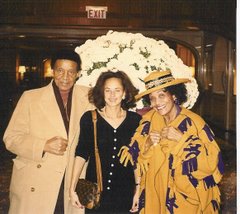
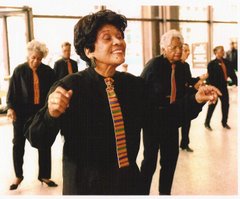
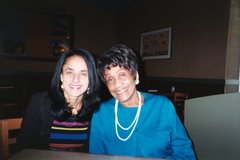
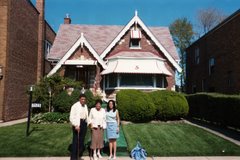
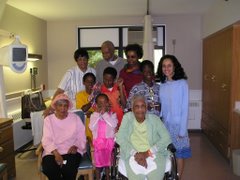

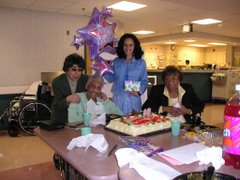
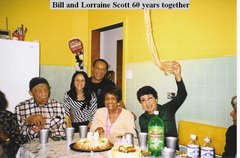
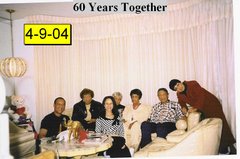
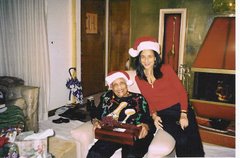
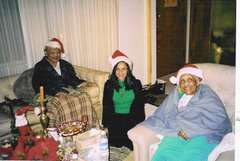
.jpg)